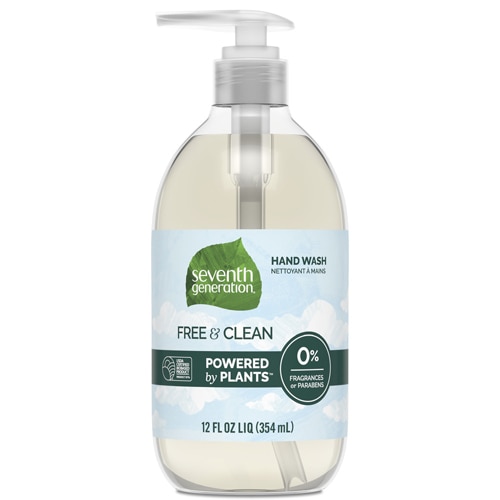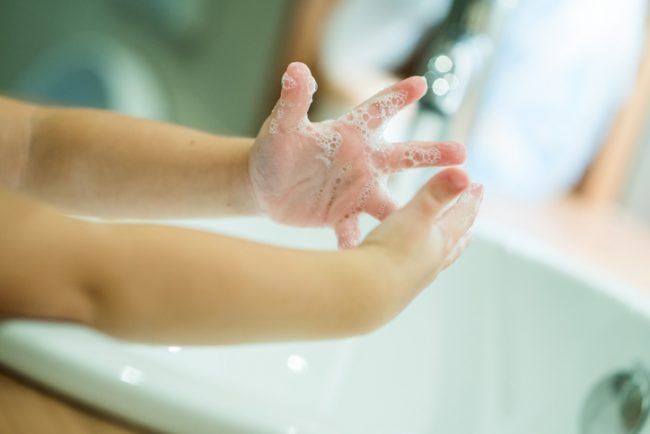Whether it’s the common cold—or worse—a full-blown influenza, you know when it’s coming. A scratchy throat, pounding headache and sudden chills are all signs that you or your child may be struck with a dreaded bug. So now that you’ve got it, how to you prevent it from spreading?
Should you scour every surface in your home with disinfecting wipes? Should you quarantine your family from one another? Will either of these ideas stop your family from getting sick, or just drive everyone crazy? The answer: most likely the latter.
Instead, follow these six pro tips to keep your loved ones safe and prevent germs from spreading through your house:
1. Wash with plain soap and water
We can’t say it enough: One of the single best ways to stop germs from spreading is to wash your hands. But getting your kiddos to listen is easier said than done, right? Taking the time to teach toddlers proper handwashing before they get ill can certainly help. A great hand-washing rule of thumb is to scrub hands for 20 seconds, or the time it takes to sing “Happy Birthday.”
Be sure to avoid shortcuts such as using antibacterial soaps and gels, which may do more harm than good. In fact, the FDA recently outlawed 19 antibacterial ingredients from use in consumer antibacterial products as studies suggest they may be connected to deleterious health and environmental impacts.
2. Use botanical-based cleaners
Look for essential-oil-based cleaners that are free of both bleach and phosphates, such as Seventh Generation disinfecting wipes, which are powered by CleanWell™—a patented technology designed to kill 99.99 percent of household germs botanically on solid, nonporous surfaces. Their ingredients also make them a safe choice to use around children and pets.
3. Disinfect strategically
For everyday cleaning, plain soap or an all-purpose cleaner can tackle the job just fine. But when someone in your residence is sick, a disinfectant wipe or spray can help kill household germs in your home. You don’t need to disinfect your house from top to bottom. The Center for Disease Control recommends disinfecting areas where there can be large numbers of household germs—and where there is a possibility that these germs could be spread to others. Here are a few hot spots to hit:
- Doorknobs
- Faucet handles
- Toilet handles
- Bathrooms
- Phones
- Keyboards
- Remote controls
- Countertops
- Tables
Be sure to wipe up cleaner with a paper towel for easy disposal so you can prevent germs from contaminating other surfaces.
4. Avoid close contact
While there’s nothing practical about quarantining, you can still try to keep your distance. If you’re caring for a sick child, encourage the other kids to play in their own rooms for a few days. If it’s you who’s sick, try to separate yourself from healthy people as much as possible. (Yes, that means letting the dishes stack up, microwaving dinner and allowing the kids to entertain themselves.)
5. Don't share
Grabbing your partner’s towel to dry your hands or allowing kids to share blankets on the couch is everyday routine. But when someone’s sick, it’s best to restrict sharing eating utensils, towels, pillows and blankets. Do wash the sick person’s items prior to anyone else using them, but don’t worry about cleaning them separately from your normal dishes and laundry.
6. The obvious: get vaccinated
One of the best ways to avoid the flu is to get vaccinated each year. When more people get vaccinated against the flu, less flu can spread through the community.
7. Toss your tissues
Shielding your sneeze or cough with your sleeve or a tissue can help keep germs contained. But germs can lurk on used tissues for hours (yuck!). Immediately throw tissues into the trash can instead of letting them pile up around the house, where they can spread even more germs.




